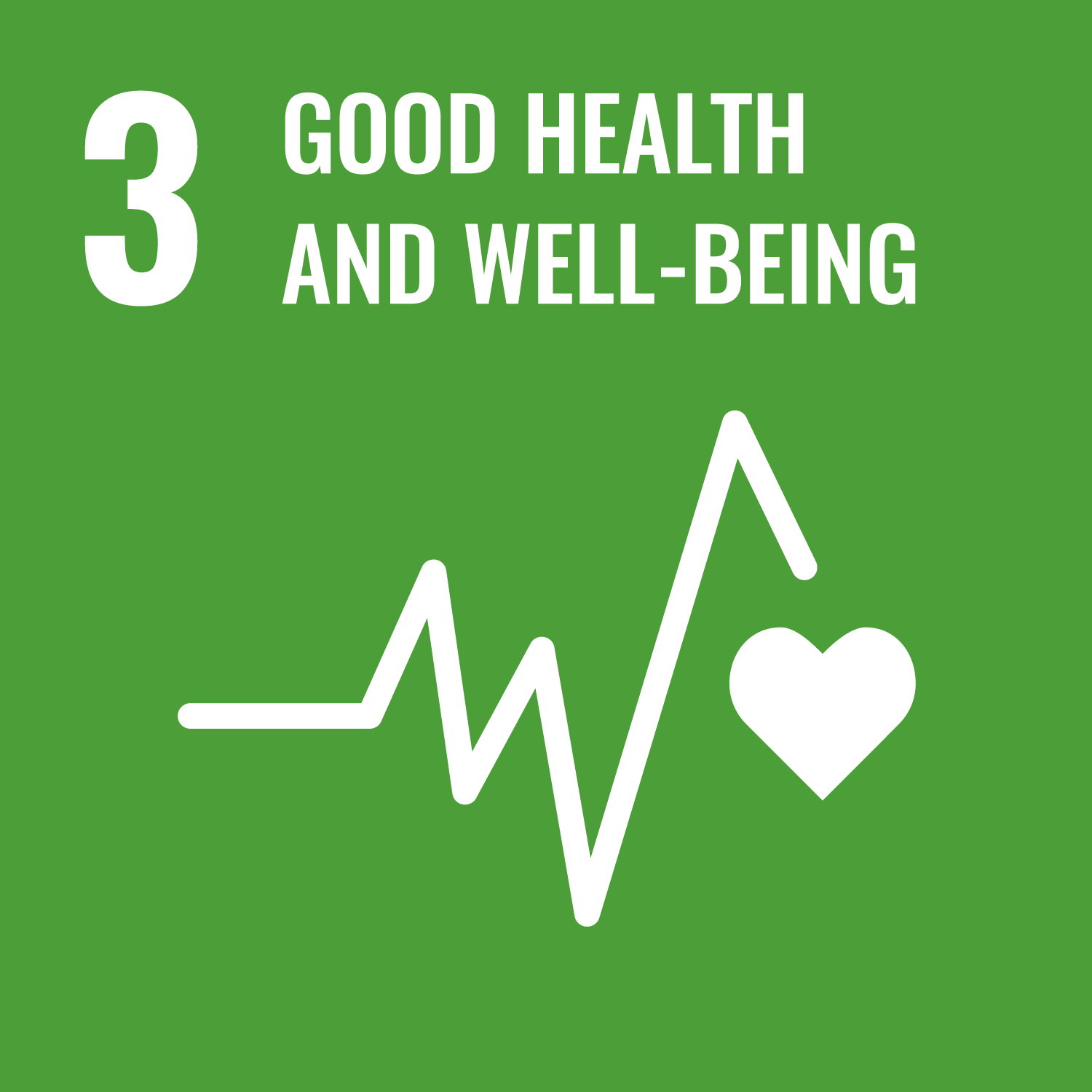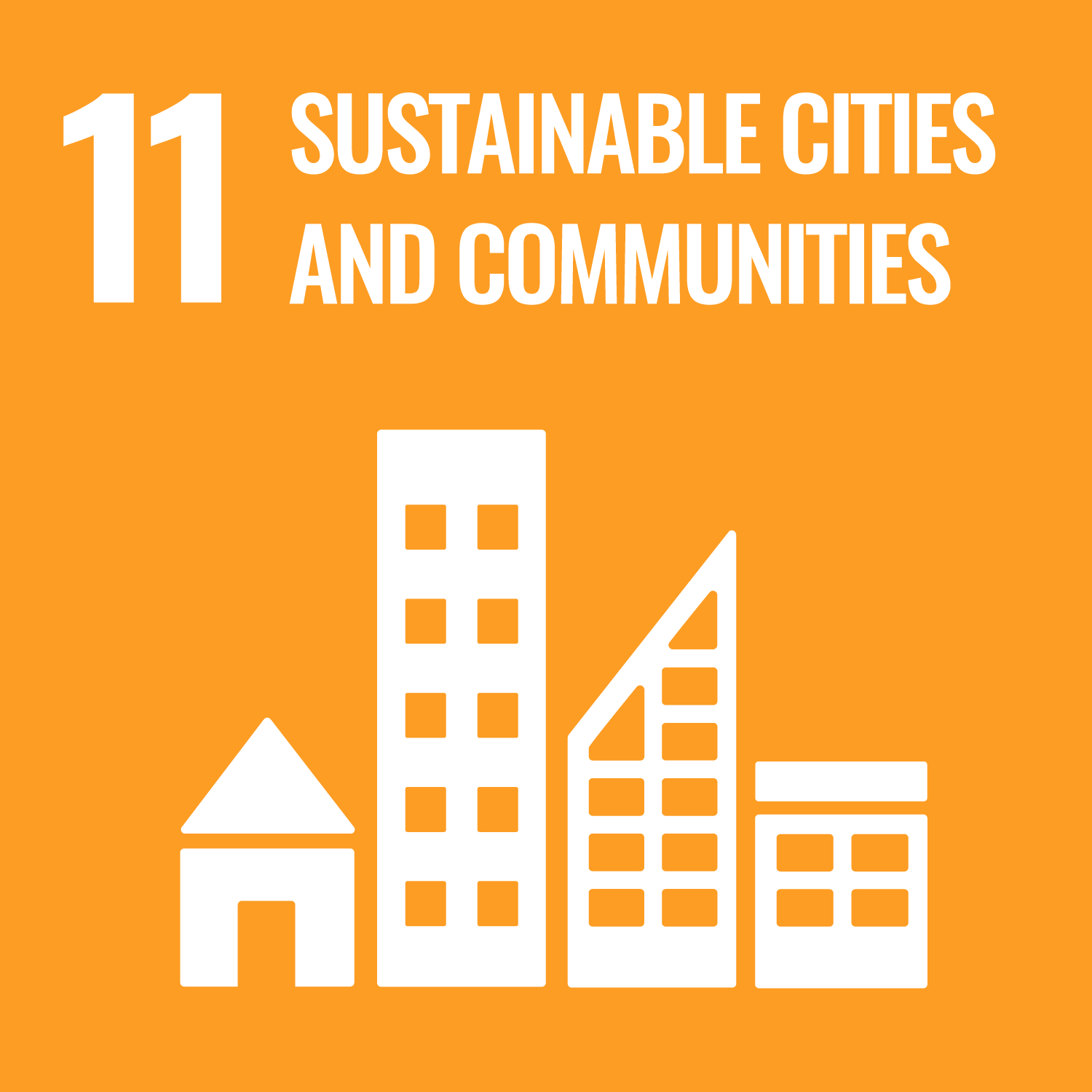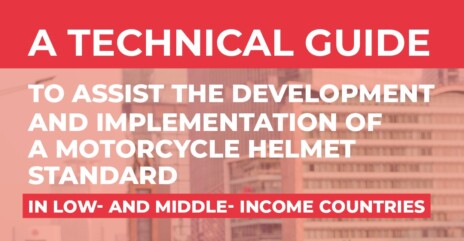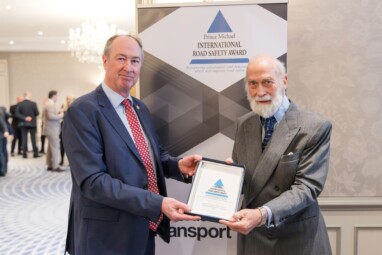VIA – Road Safety Education for the Next Generation
The Aim of VIA
Road safety is a man-made humanitarian disaster claiming the lives of over 1.19 million people and inflicting life altering injuries to over 50 million people each year. Children and young adults are the most affected by this crisis as road crashes are the leading cause of death for youth aged 5 to 29.
To sustainably decrease these numbers, multiple road safety interventions focusing on injury prevention and risk reduction need to occur in synergy. Educating youth on safer road behaviour is one of them. The VIA Programme aims to do just that.
VIA is designed as a modular, flexible, and accessible programme for child road safety education focusing on children and young adults aged 10 to 18 years. The programme can be tailored to local environments and needs making it easily replicable across the world.
The suite of educational tools included in the programme are built on internationally recognized child road safety education best practices, which draw on the experience of road safety practitioners from a breadth of industries and from the knowledge of the Global Road Safety Partnership Expert Team.
VIA has been developed as an easy to integrate programme that can be implemented in lieu of road safety progammes in schools or can easily complement current road safety curricula in schools avoiding the risk of duplication.
VIA is a programme that comprises detailed instruction manuals, digital and paper-based tools, instructional videos, and educational games—everything that is required to quickly and effectively implement a structured educational project designed to help make children safer on the road.
VIA was created and successfully piloted in three countries—France, Cameroon and India—in early 2019. Building on these experiences, the Global Road Safety Partnership, the TotalEnergies Foundation and the Michelin Corporate Foundation launched a global rollout of the programme.
VIA is currently implemented globally and it is open to partnering with like-minded private sector organizations, foundations, development banks, international organizations and other potential funders and implementors to expand the programme reach and provide life-saving road safety education to children in need all over the world.
Please, visit the VIA website in Arabic.
Read here the latest VIA Newsletter in English and French.
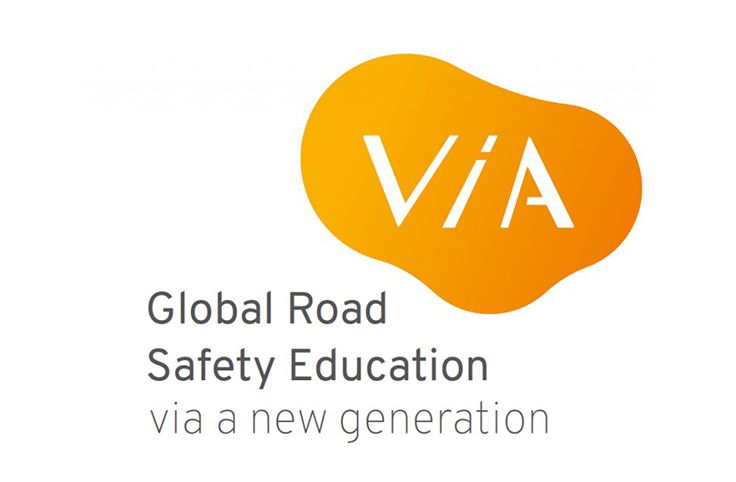
More about VIA
The road safety education methodology aims to develop the following four key-competencies:
Risk competence
Learning to estimate potential risks in traffic, acting and reacting in a safe manner to minimize road safety risks.
Safe Mobility competence
Learning and understanding traffic rules as well as gaining practical skills to become a responsible and safe road user.
Transportation skills
Learning to safely handle and use various means of transport (feet, bicycle, public transport, etc.) in traffic.
Social competence
Learning to behave attentively and to consider others whilst on the road; learning to communicate with others in traffic.
Learn about risky behaviour on the road.
Learn how to avoid accidents.
Become aware of the connection between safe behaviour on streets/ roads and the protection of one’s own life.
Produce creative road safety messages and action plans with the aim of implementing road safety measures for school routes and environments, neighbourhoods, etc.
Founding Partners: Michelin Corporate Foundation and TotalEnergies Foundation.
Global Managers: The Global Road Safety Partnership.
VIA 3rd Party Funders: Private sector organizations, foundations, development banks, international organizations and other potential funders willing to join and expand the programme reach.
National Managers: In-country Affiliates of Total and Michelin. National offices of other Funding Partners.
Implementing Partners: Local NGOs, Red Cross Red Crescent National Societies, schools or similar organizations implementing the VIA project on the ground.
Beneficiaries: Children and young adults between 10 and 18 years of age.
The Opening Module refers to the first didactic step “Feeling”. Feeling the importance of road safety is the entry point of the learning programme. Addressing emotions through communication, storytelling, and discussion with the young people is important before teaching on a cognitive level. Therefore, this module is the essential and required starting point for the VIA Programme.
The Knowledge Module refers to the second didactic step “Knowing and Activating”. This module is subdivided into 5 themes according to transport modes (walking, cycling, motorcycling, car driving, and public transport). It is encouraged to do the Knowledge Module Walking and to choose additional exercises or activities from other knowledge modules.
The Creativity Module refers to the third didactic step “Creating”. By participating in the Creativity Module, young people are brought closer to the subject of road safety with a life-affirming, joyful, and creative approach. They work on road safety topics more in-depth by using creative, interactive, and emotive methods.
The Implementation Module refers to the didactic step “Implementing”. Within this module, young people become more active in bringing about real change to address dangerous traffic situations in the area around the school and to create safer conditions.

32
Countries deploying VIA

185,073
Young people engaged

1,266
Schools engaged

25,840
Teaching hours with children
The History of VIA
It is quite common for private sector organizations with road safety exposure to include road safety education for children within their Corporate Social Responsibility portfolios. Whilst mostly positive, it has been recognized within the road safety community that the ‘silo’ approach often taken within these programmes has resulted in some duplication of effort and expense when developing methodology and materials. It was with this in mind that Michelin, TotalEnergies and GRSP, together with the World Health Organization (WHO), came together for a ‘small table’ discussion in July 2017.
From this initial conversation, the idea was born to pool resources to create a non-branded, evidence-based programme complete with inter-changeable teaching resources, games, skills training and interactive activities that could be tailored to meet the needs of children in different contexts all over the world. A global call for proposals was launched in 2018 and a consortium of road safety and educational experts was selected to work closely with GRSP to design and develop the structure, tools, materials and guidelines of this programme based on best practices from around the globe.
With the tools in hand in 2019, three implementors were chosen to pilot the programme in three very different contexts in India, France and Cameroon. Following the pilots, a thorough review and evaluation were conducted in each country interviewing the implementors, the teachers and principals as well as the students to inform refinement of the programme materials and structure ahead of its global launch and rollout in the latter half of 2019.
The VIA programme is continuing its ambition to be a truly global programme and is continuing to welcome new partners and implementers all over the world as the programme opens its doors to new funders beyond the steadfast support of the corporate foundations of Michelin and TotalEnergies.
VIA is supported by:


Archived Newsletters
Related news
